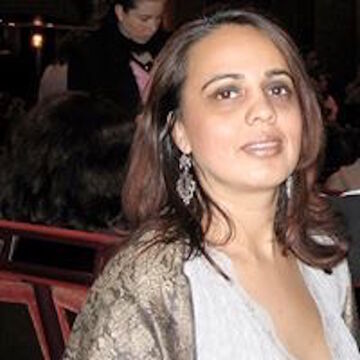

Arshiya Lokhandwala
Lecturer
Contact
Bio
Dr. Arshiya Lokhandwala is an art historian and curator and [Ph. D. Cornell University] Master’s of Arts in Curating, Goldsmith College, London], and the founding director/curator of Lakeeren Gallery, Mumbai, India. Her recent museum curatorial projects include The Future is Here: Art and Technology in Millennial Age [2019], Beyond Transnationalism: The Legacy of Post –Independent from India at Dr. BhauDaji Lad Museum, Mumbai [April 2017] and Raza Foundation, Delhi [January 2017], India Re- Worlded: Seventy Years of Investigating a Nation [2017] for which she was awarded the curator of the year award by India Today, Given Time: The Gift and Its Offerings [2016] both at Gallery Odyssey, Mumbai. After Midnight: Indian Modernism to Contemporary India 1947/1997 [2015] at the Queens Museum, and Of Gods and Goddesses, Cinema Cricket: The New Cultural Icons of India for the RPG Foundation in Mumbai, and Against All Odds: A Contemporary Response to the Historiography of Archiving Collecting and Museums in India at the Lalit Kala Academy, Delhi [2011].
She was been teaching South Asian Feminism in the Art Institute of Chicago, the USA in the Art History department since 2019. She has curated over 200 shows at Lakeeren Gallery, which included an international program of artists from India, Pakistan, Iran, and Germany & Mexico City. Dr. Lokhandwala writes on globalization, feminism, performance, and new media specializing in biennale and large-scale exhibitions.